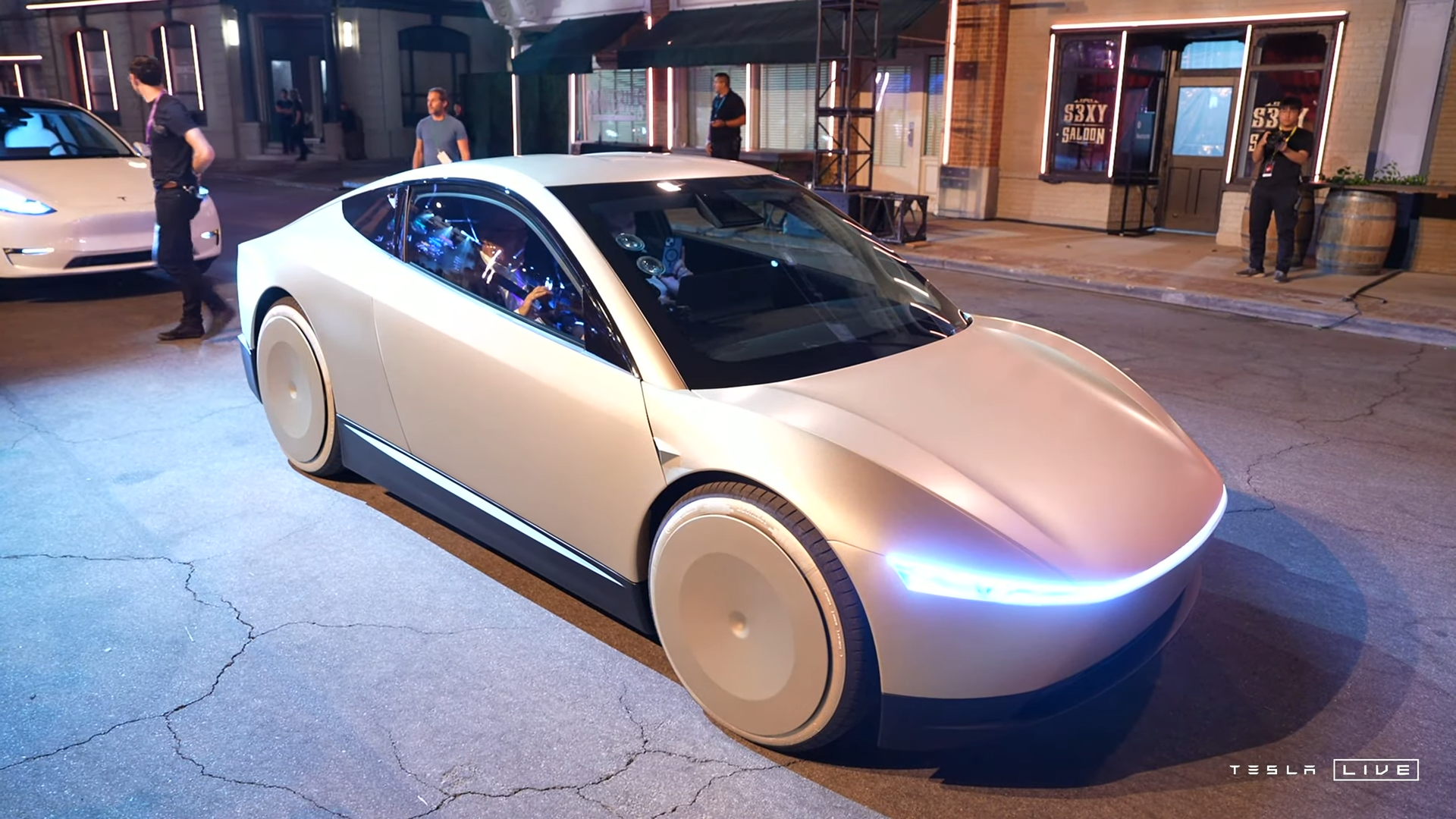Elon Musk wants your Tesla to have a mind of its own—and that includes driving off without you
Car-n't you believe it?

Tesla CEO Elon Musk took to the stage of the We, Robot event hosted at Warner Bros. Studios in Burbank, California to pitch the company's autonomous vision of the future. In addition to a fleet of Detroit: Become Human-esque robots, the new Cybercab, or Robotaxi, and the higher-capacity Robovan were unveiled, positioned as the company's shot in the arm for public transportation.
But Tesla doesn't just want to further snarl up LA traffic with what's being described as individualised, point-to-point mass transit. On stage, Musk posited, "How many hours a week are cars used? About 10 hours a week, out of 168 hours. So the vast majority of the time, cars are just doing nothing. But if they're autonomous, they could be used—I don't know—five times more? Maybe 10 times more?"
These comments follow remarks made by Musk during an earnings report earlier this year regarding Tesla's own venture into an Uber-esque ride-hailing app (via The Verge). For anyone who does take the plunge and purchase a Cybercab for a cool $30,000 (when they eventually enter production in 2026), the robotaxi vision sees you setting up your autonomous vehicle to take rides when you're not actively using it.
Sooner than 2026 (which Musk admitted on stage was an "optimistic" time frame), Tesla’s Model 3 and Model Y autonomous vehicles are set to operate autonomously without driver supervision in the states of California and Texas.
Musk also said at We, Robot, "We have 50 fully autonomous cars here tonight. [...] All driverless. You'll be able to take a ride in the Cybercab. There's no steering wheel or pedals…so I hope this goes well!"
This was an overly cute remark to make considering Tesla is currently subject to a number of lawsuits alleging death or otherwise serious harm due to a number of their vehicles' driver-supervised Autopilot feature.
For one example from the BBC, the company settled on a lawsuit earlier this year concerning a 2018 fatal crash that occurred when a Model X using the Autopilot feature collided with a highway barrier. For a more recent example, The Verge highlights one 2023 incident disclosed in a federal NHTSA report (pdf warning), where a student disembarking a school bus was allegedly hit by a Tesla Model Y operating on Autopilot at “highway speed”.
Keep up to date with the most important stories and the best deals, as picked by the PC Gamer team.
Despite this recent history, Musk insisted at the We, Robot event, "With autonomy, you get your time back. This is a very big deal—it’ll save lives, a lot of lives, and prevent injuries."
The thinking from Tesla is that as autonomous cars are fed a 'million lifetimes of experience,' can see in all directions, and don't get fatigued as people do, they can anticipate unusual situations that ordinary humans wouldn't.
The burning question left in my mind though is, if a private Tesla owner's vehicle is hailed for a ride and hits someone in the process, who would Tesla argue is liable in this autonomous vision of the future? And if an incident does occur while your Tesla is out without you, how would the owner of the vehicle in question be notified? This likely goes without saying, but I doubt a 'lawsuit inbound' app notification would cover it.

Jess has been writing about games for over ten years, spending the last seven working on print publications PLAY and Official PlayStation Magazine. When she’s not writing about all things hardware here, she’s getting cosy with a horror classic, ranting about a cult hit to a captive audience, or tinkering with some tabletop nonsense.

